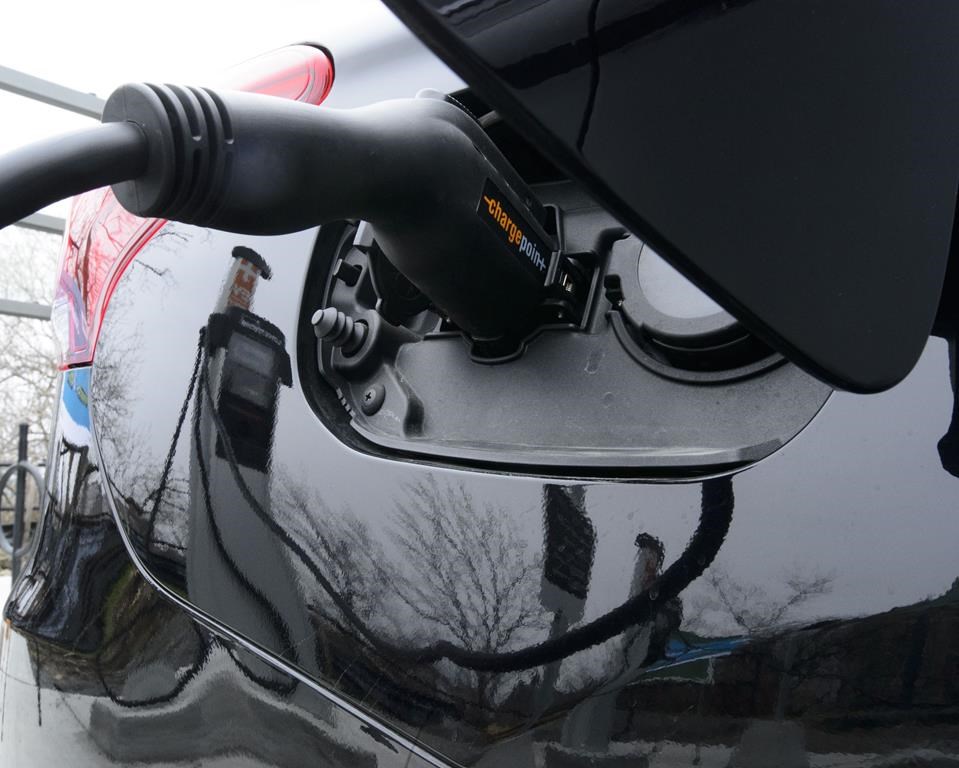The federal government has announced that it wants 20 per cent of all new vehicle sales to be electric by 2026 and wants that number to jump up to 60 per cent by 2030.

Those in the electric vehicle industry say it’s about time.
”This is very urgent…whether it be the farmers who are having problems because there’s not enough moisture for them to grow crops,” said Manitoba Electric Vehicle Association President Robert Elms.
“Folks who are suffering with the forest fires that are devastating their homes, their neighbourhoods and their entire communities and the fact that it’s happening all the way around the world, I think that’s telling us that this is something we’ve got to do something about,” .
Yet the target numbers, which would need a very large rise in electric vehicle sales, seem very ambitious to some.
“Car trends do change moderately quickly but that’s asking an awful lot. That’s looking at sales going up 45 or 46 per cent per year every year for the next five years,” said University of Regina associate professor of economics Jason Childs.
Incentives, subsidies, and education are all tools various levels of government can use to incite consumers to switch to more environmentally-friendly machines.
“It’s going to be really challenging to see if we are going to be able to drive enough demand in that direction. Remember we are talking about moving from roughly 66,000 units in 2021 to somewhere around 450,000 units by 2026,” said Childs.

Creating enough demand to generate those sales seems like a challenge, but factors like gas prices could change that.
“Here on the prairies, for someone who switches to an electric vehicle at today’s gas prices, it’s getting better but even a year ago $2,000 per year was not at all unusual for folks to save,” said Elms.
And Childs echoed that sentiment, saying, ”if the price of gasoline stays around two dollars or goes up to three dollars per litre I don’t know that you’re going to need a ton of government subsidies to get people interested in switching.
“The big challenge is going to be getting the vehicles here and ready to sell to people.”
Elms points to Norway which is regarded as a world leader in this sector for proof that the transition can be done. He says electric vehicles outsell gas ones at a rate of 10 to 1 in the European country.
”We know we can do it as it’s being done in some other places in the world. And of course the fact that now there’s a financial incentive there direct to those … who are driving the vehicles makes it so much easier to do,” said Elms.
In a vast province like Saskatchewan, getting tools like charging stations to small towns also seems difficult which is why SaskPower created the “electric vehicle infrastructure program.”
“Through our studies and through some research we identified that there’s a significant gap in many parts of the province for charging infrastructure, so we launched this program in conjunction with the federal government to fill those gaps. To hope fully fill those gaps as much as possible,” said SaskPower spokesperson Scott McGregor.
Elms is confident that programs like this could make the difference. “It’s a matter of infrastructure. If those fast chargers are there to allow us to make those long-distance trips in convenient places, people will switch.”
SaskPower says the progressive spike in need for electricity to charge cars is manageable and something they are preparing for like any other new technology.
“We do build added capacity into our generation across our grid so in terms of the supply that we have of electricity to the province EV’s don’t pose any sort of threat to any kind of unmanageable spikes in demand,” said McGregor.





Comments